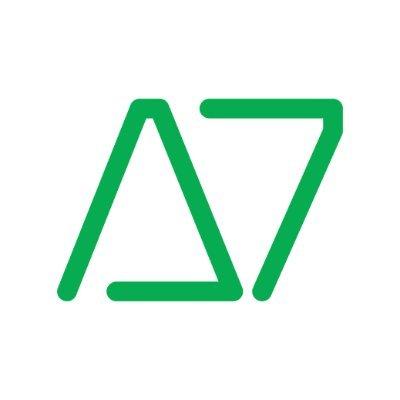Invest in startups
Invest in rental homes
High Risk
4/5
Investing on Republic involves significant risks such as the potential total loss of investment, illiquidity, long-term commitment without guaranteed returns, risk of dilution, limited information on investments, and possible impacts from regulatory changes.
Moderate Risk
3/5
Investing on Ark7 carries risks such as market volatility, property value fluctuations, economic impacts, and potential liquidity challenges in the secondary market.
Minimum Liquidity
1/5
Investments on Republic are generally illiquid, meaning it may be difficult to sell or convert them into cash quickly.
Moderate Liquidity
2/5
Ark7 allows investors to sell their shares on a secondary market after a minimum holding period of one year, providing liquidity.
Receive new reviews from Fintorial
Not Predictable Return
N/P
Returns on Republic depend on the success of invested projects, companies, or funds, with potential payouts varying by investment terms.
Low Return
3.22-6.96 %
Ark7 offers annualized cash return rates between 3.22% to 6.96%, or $0.1 to $0.58 per share, based on past performance or estimates for newer properties.
Long-term Investment
3-10 years
Investments on Republic typically have a long-term horizon, often requiring several years to over a decade before potential returns are realized.
Long-term Investment
1+ year
Ark7 targets long-term investments in real estate for appreciation but allows selling shares after a minimum holding period for flexibility.
Who can invest
International
Anyone 18 or older can invest on Republic, with specific eligibility and investment limits varying by campaign. International investors can participate in many offerings, subject to local laws and specific campaign terms.
Who can invest
United States
Ark7 is open to U.S. citizens or residents over 18 with an SSN or ITIN and a U.S. bank account. Select offerings are for accredited investors only.
Moderate Volatility
3/5
Assets on Republic, like startups and private ventures, exhibit high volatility due to factors like market sentiment, regulatory changes, and business uncertainties. Valuation changes can be sudden and significant, reflecting the inherent risks and potential rewards of these types of investments.
Moderate Volatility
3/5
Assets on Ark7 exhibit volatility influenced by real estate market shifts, economic conditions, and demand fluctuations. While real estate is generally stable, values and rental incomes can vary. Additionally, liquidity and market demand on the secondary market may affect share prices and selling ease.
Regulation and audits
SEC Regulated
Republic operates under SEC regulations like Reg CF, Reg A+, and Reg D, ensuring transparency and investor protection. Companies on Republic must adhere to disclosure and, in some cases, undergo financial audits or reviews.
Regulation and audits
SEC Regulated
Ark7 complies with SEC regulations, making necessary filings for transparency and undergoes regular independent audits for financial accuracy and operational compliance.
Insurance
No
Investments on Republic are not covered by traditional insurances or state guarantees like FDIC protection.
Insurance
Yes
Ark7 secures comprehensive insurance for all properties, covering natural disasters, property damage, and liability, to protect investors' returns and mitigate financial risks.
Payouts
No Recurring Payouts
Dividends on Republic are not standard across all investments and depend on the specific agreement with each company. Some investments may offer dividends through revenue-sharing arrangements, but many startups prioritize reinvestment over distributing earnings.
Payouts
Dividends
Ark7 offers returns through monthly cash distributions from rental income, after deducting operating expenses, and long-term property appreciation. Distributions are prorated based on shares owned and deposited monthly. Property appreciation potential comes from home value gains, with shares sellable on the secondary market after a holding period. Monthly distribution amounts may vary due to operational factors.
Withdrawals
On Republic, returns mainly come from liquidity events like acquisitions or IPOs, but these are uncertain and can take years. Selling shares directly is typically not possible within the first year due to federal restrictions, with few exceptions. Even after this period, the resale market is limited and subject to legal considerations.
Withdrawals
Investors can get their money back by selling their shares on Ark7's secondary market after a minimum one-year holding period or through property appreciation when they sell their shares.
Extra Fees
Yes
Republic charges an administrative fee for investment commitments, typically 2%, with a minimum of $5 and a maximum of $300, varying by offering. This fee is refunded if an offering is canceled or withdrawn but not if the investor cancels their commitment.
Extra Fees
Yes
Ark7 charges a one-time 3% sourcing fee of the property market cap for acquiring and listing properties, and a monthly asset management fee of 8-15% of rental income for property and tenant management.
Taxes
Annual Statement
Republic does not provide tax documents or specific tax guidance for investments. Tax implications, such as for Crowd SAFE and Token DPA investments, depend on the investment's nature and liquidity events.
Taxes
Tax Form
Ark7 issues Schedule K-1 forms for properties taxed as partnerships and plans to issue 1099-DIV for properties treated as REITs, aiming to transition as they open to the public. Tax documents are sent before March 15th, considering depreciation and expenses to potentially reduce taxable income for investors.

